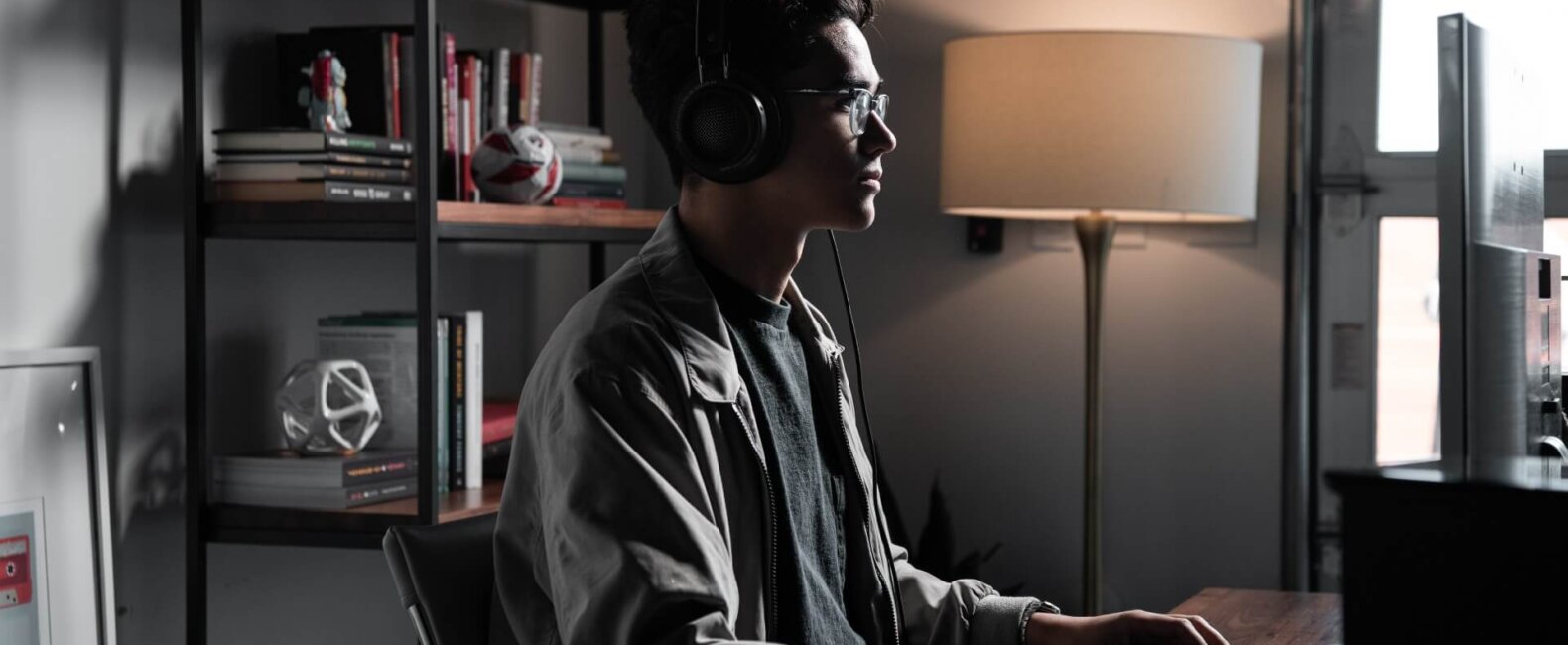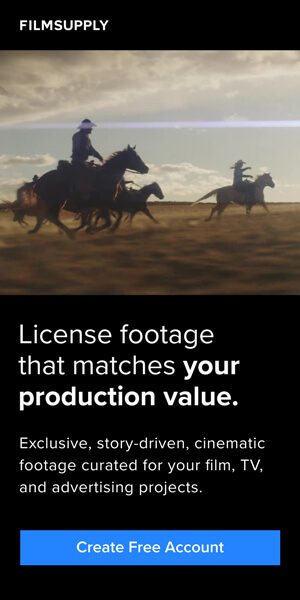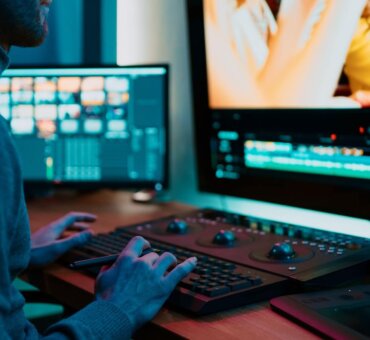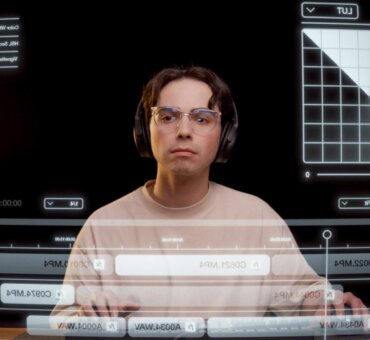For any aspiring editor out there, there are a wealth of video editing techniques to learn and master – that’s no secret. However, video editing skills aren’t all that’s required to be a truly great editor. Did you know that the video editing workforce in the US is about 30,000 as of 2023? There’s a lot of competition out there.
If you want to get ahead in this industry, not only should you be looking to learn video editing techniques and excel technically, but you should also be focusing on personal traits and social skills too. What a lot of beginner video editors don’t realize at first is that it’s the whole package of personal, social and technical skills that come together to make you the best in the business.
In this article, we’re taking a look at all three categories of skills and how you can grow in every area. This combination of professional skills is the roadmap for how to get you to where you want to go as a video editor.
Personal skills
First up, personal skills. Just like any other job in any other industry, employers are looking for certain skills that demonstrate your general competence. Not only should you have great video editing skills but show attention to detail, be a self-starter, demonstrate organizational skills, problem solving and good memory. These will all come in handy throughout the video editing process.
Attention to detail
Employers love to see someone who pays good attention to detail. If you’re not dotting your i’s and crossing the t’s (in other words, if you’re not neat and make a lot of mistakes), this could suggest that you’re not a thorough editor who can do the job to a good enough standard.
Video editors have to demonstrate their ability to produce near-flawless work under pressure. Directors and producers can’t afford for you to miss a dodgy transition or mess up on the audio track which still has the copyright watermark playing over it…attention to detail matters.
Self-starter
To make it in this industry, you have to show real initiative. The work isn’t simply going to land in your lap like magic out of thin air. It’s up to you to make things happen. Showing that you’re a self-starter indicates to employers that you’re keen, hungry and passionate about being an editor.
If you’re a little lazy and not too bothered about making things happen for yourself, it shows that perhaps you’re not that interested in making it. If you’re not bothered, why should potential employers be?
Organizational skills
This goes for just about any job in the world, right? The video editing process in particular demands a lot of organization from video editors. You’re working with so much footage and so many files that if you’re not organized, the project is going to fail.
Employers want to see that you can organize effectively, taking good care of their footage and being able to work effectively within a larger team. Even if your folder and file setup somehow makes sense to you, who’s to say other editors know what they’re looking at? It’s quite common for video editors to share a project or have to pass work on to another department. If you need to find and bring up a file super quick, it’s essential that you’re well organized. Using tools such as Frame.io can really help you out here.
Problem solving
When you boil it down to the bare bones, essentially isn’t all filmmaking just problem solving? As an editor, the problem you’re solving is finding a way to craft the raw footage you’re given into an interesting, well-paced story that holds the attention of an audience.
Furthermore, we all know how often filmmaking can be unpredictable. Things go wrong all the time, so it’s important that you show you can adapt to these problems and challenges, overcoming them quickly.
Good memory
We’re not saying you should be the next Sherlock Holmes but being forgetful is never a good look. Demonstrating that you have a good memory showcases that you’ll be able to take onboard instructions and briefs, learn the rules and fit seamlessly into a project.
If you forget things all the time, directors and producers will be pretty nervous about trusting you with lots of information and all of their files. Don’t be that person.
Social skills
While outsiders may envision video editors as being shut off from the world, alone for hours in front of their huge screens (that’s certainly accurate from time to time), the reality is that, just like any other job, you need to demonstrate good social skills if you want to be hired to edit films. At the end of the day, the filmmaking process is at its best when you’re working in a team. This is where the best stuff gets made.
Team player
Is it a buzzword? Probably. But working well with others is essential in just about any job. It’s no different for video editors. The number one thing that can get you ahead in the industry when you’re networking (more on that below) is to be a good person.
I can’t tell you how many times I’ve seen someone that, although ridiculously talented, didn’t get invited back for the next project because they made a reputation as someone who was rude, arrogant and didn’t fit in with the team. Meanwhile, those who are polite, friendly, welcoming and easy to get along with are always the people you look to work with again. It’s simple, really!
Networking
If you’re looking to build yourself a career that has longevity and really climb the ladder, you need to network. The video content industry is all about people so don’t be afraid to show your face with a smile, say hello and introduce yourself. The more people you meet and know, the more opportunities there can be further along.
For example, if you’re able to, why not meet other video editors or directors and producers for a coffee, if they have the time? You don’t need to go in with any agenda or ask anything of them. Just go to say hi, talk shop and let them know who you are and what you do. Further down the line, they may remember you and give you a call. Networking is how you can go from being an assistant editor to editing your first feature.
Communication skills
Naturally, to network and be a good team player, you need to have good communication skills. Furthermore, in the middle of film editing there’s a lot of back-and-forth between many different players. You need to be able to get your point across and deliver crucial information in a concise, succinct manner that everyone can understand immediately.
On the flipside, you also need to be a good listener. Know when you hold your tongue and let others have their say. Pay attention to everything your director says and wants in the revisions.
Learning the lingo
You need to walk the walk and talk the talk. Showcasing your understanding of industry-specific vocabulary demonstrates that you’re the real deal. Knowing the lingo (what are rushes? What’s a J-cut?) puts people at ease – you understand this job inside out, you’ve got experience doing it and you’re a competent editor who can cut compelling videos.
If you land your first job as an editor and don’t know what a director is saying when he’s talking about eyeline matching and the establishing shot, you might not carry out what they’re asking for. This can lead to questions about your competency and ability as an editor.
Technical skills
Video editing software
There’s no escaping this one. Like a hammer to a blacksmith, video editing software is the video editors tool they simply cannot live without. There are a lot of options out there, ranging from great free software such as iMovie or Adobe Premiere Rush to more complex, professional-grade programs like Avid Media Composer, Adobe Premiere Pro, DaVinci Resolve and Final Cut Pro X. Other tools like Adobe After Effects dive into the world of animation and graphic effects.
If you can master extensive understanding and knowledge across these video editing software options, you’ll be an attractive employment proposition for productions across the board. Right now, Adobe Products, After Effects Design and social media represent an additional healthy share of the employer Video Editor job postings with their combined total of 28.06%.
PC skills
Professional video editing is really demanding on your PC or laptop. As one of our video editing tips, we advise that you know your way around what makes a great editing machine. It’s like a professional race driver understanding why their car goes so fast. For you as a film editor, it means getting to grips with GPUs and CPUs, knowing why they’re important and what exactly you’re going to need depending on the video projects you work on.
This type of knowledge is useful in general but will also impress your peers and employers in the industry. It’s a sure sign that you’re really competent and know what you’re doing.
Keyboard shortcuts
The vast majority of video projects that you edit during your career will undoubtedly have some sort of deadline. The ability to work efficiently and get things done as fast as possible (without being sloppy) is crucial. Learning keyboard shortcuts unlocks the true power of your editing software, drastically reducing the time it takes to cut sequences. If you want to be one of the best video editors out there, you need to know them all like the back of your hand.
Color grading
Color is how we evoke certain emotions and convey subtle messages in our films. For example, reds indicate passion, love, or danger. Greens can mean jealousy, wealth or calm. “If it’s purple, someone’s gonna die.”
It’s important that as you sharpen up your video editing skills, you learn how to color correct and grade professionally. Understand not just how to do it, but more importantly why you’re doing it.
Soundtrack selection
While not strictly a video editing technique like color grading, knowing how to find the right song is essential for any competent editor. Music drives the story forward emotionally, so your soundtrack choices can completely change the tone, atmosphere, and meaning of a sequence in your edit.
For example, Musicbed was designed with the video editor’s job in mind. You can search songs by genre (ambient, cinematic, indie) and mood (chill, happy, serious). To get even more specific, you can then filter by dozens of attributes (aggressive, French, spiritual) as well as find the right BPM, length, build, and instrument. Using a catalog as comprehensive as Musicbed is what sets the best editors apart from the rest.
Save, save, save
CTRL + S is a lifesaver, in fact, you should have the auto-save feature ticking over every few minutes. There is nothing worse than making a lot of progress on an edit, only to have a crash or glitch force a shutdown or restart. It might not be common, but it can happen and if you haven’t saved your project recently, all of that progress can be lost.
Backup
Similarly, you should be backing up all of your footage. So many people have gone through so much time and effort to shoot the footage that you’re crafting. Can you imagine what a loss it would be if that footage was lost – somehow deleted or corrupted?
Video editing tips 101: the first thing any competent editor does is backup that footage. Multiple times. You need to make sure that even if your first drive location goes down and a backup somehow also fails, you’ve still got that footage kept somewhere nice and safe. If you mess this up, it can be a real tarnish against your name – something that your career may never recover from if word gets around.
Continuous education
In the world of filmmaking you are never, ever done. Even the greats never stop learning. By continuing to sharpen your skills, learn new things and hone in on your craft, you’re showing that you’re humble enough to realize you can always do better, as well as being truly hungry and passionate about your craft. This is a trait seen in all the best editors.
An education in editing has never been easier, too. You can read books, watch tutorials on YouTube and sign up for all kinds of courses, written and taught by the very best in the business. Furthermore, you should be studying the greats and getting in touch with peers and those you look up to. You can learn a lot by cutting another editor’s reel, for example.
Final thoughts
So, those are our 17 essential video editing skills that every aspiring editor should be looking to master. There are more, of course, but this trifecta of technical, personal and social skills will be the best foundation for you to build on. For some of these skills such as the social aspects of being a great editor, you’ll simply have to practice in real life and develop them as you go. Meanwhile, other things such as technical skills can be self-taught through all kinds of mediums from reading to podcasts and tutorials on YouTube.
However you do it, now is a great time. According to the U.S. Bureau of Labor Statistics, the employment of film and video editors is projected to grow 3 percent in the next decade. With so much free information and knowledge out there on the internet nowadays (including this very article you’re reading), there’s never been a better, easier time to become a great video editor.






